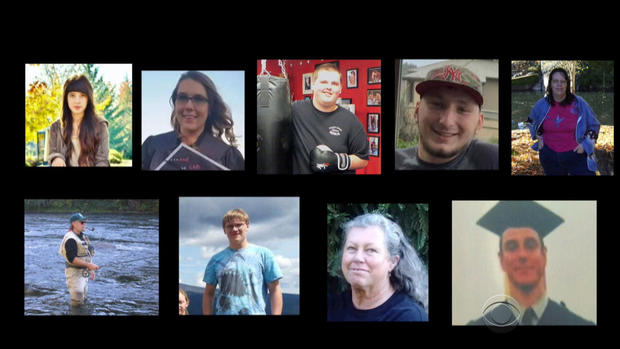Investor push to target gun makers fires blanks
If government is unable to prevent the kind of mass shooting last week at Umpqua Community College in Oregon, history suggests it is also a mistake to count on the private market to stem the violence.
The 2012 slaughter of 20 children and six adults at Sandy Hook Elementary School in Newtown, Connecticut, sparked a move by institutional investors to pull their holdings from the weapons industry. Three years later, the campaign has proved largely ineffective, with rising gun sales seemingly canceling out the divestiture push.
"Right after Sandy Hook, the single most important watershed event in the industry, we had high-profile endowments and state pension funds saying they wanted to divest," said Rommel Dionisio, an analyst at Wunderlich Securities. "The other thing was a dramatic surge in the sale of firearms."
Unlike after previous shootings, shock over the Sandy Hook massacre shifted investor sentiment toward firearms manufacturers. The companies began to be thought of as "sin" stocks, or companies involved in alcohol, tobacco and gambling. That designation, while unofficial, reflected the renewed public focus on gun makers and their role in a seemingly endless string of mass shootings, along with more commonplace violence.
"After Sandy Hook, there was a huge move by many money managers in the Northeast to divest in firearms," he said. "There are certain funds that will not touch anything firearm-related," said Brian William Ruttenbur, an analyst at BB&T Capital Markets.
Not long after the Dec. 14, 2012, incident in Newtown, the California teachers' pension fund contacted Cerberus Capital Management, a private equity firm that managed $750 million of its money. Shortly after, Cerberus said it would sell the Freedom Group, the maker of the rifle used in the Connecticut killings.
In the months that followed, the world's largest educator-only pension fund unloaded $3 million in public equity stocks from Smith & Wesson (SWHC) and Sturm Ruger (RGR), while continuing to press Cerberus, which found itself unable to sell its holdings of Remington Outdoor, formerly Freedom Group. More than two years later, the buyout firm separated Remington from its funds in an unconventional way of appeasing the teachers fund and other investors.
"Cerberus was able to tender an offer to cash us out of our interest in Remington Outdoor, effectively removing the gun company from our private equity portfolio as of June 5, 2015," said Ricardo Duran, spokesperson for the California State Teachers' Retirement System, which as of the end of August had a portfolio valued at $184 billion.
Cerberus, which up until late last week still had Remington listed on its website as among its holdings, declined to comment.
The movement to withdraw funds from gun sellers included Occidental College's banning investments in manufacturers of assault weapons last year and New York City's biggest pension fund in July considering getting rid of stocks from retailers that sell weapons, including Walmart (WMT), Dick's Sporting Goods (DKS) and Cabela's (CAB).
Large investment companies also have responded by offering products that cater to those looking to promote their social beliefs through investing, with Vanguard for instance, offering a Social Index Fund, stocks screened for "certain social, human rights and environmental criteria."
Promoting social change through divestment gets mixed reviews from one academic who has studied the issue.
"We learned from the example of South African boycotts that such actions had a minimal effect on the apartheid-involved companies," said Marcin Kacperczyk, a professor of finance at London's Imperial College. "At the same time, general trends suggest that the amount of socially responsible investing and policies has been steadily growing, so we can possibly imagine we are in a transition period from weak to stronger effects of such actions."
The murder of nine people by a gunman in Oregon has President Obama renewing calls for expanded background checks and other measures to curb gun violence, while Democratic presidential hopeful Hillary Clinton has proposed holding gun makers accountable for negligence.
Far from taking a hit, however, in the days that followed shares of firearms manufacturers Smith & Wesson and Sturm Ruger both climbed. That echoed a pattern that has occurred after mass shootings in recent years, with investors betting that the companies' sales would benefit from concerns among some gun owners about the prospects for tighter weapons restrictions.
"The No. 1 driver of gun buying is fear. President Obama has been the best thing in the world for gun sales, and Hillary Clinton is just going to accelerate those fears," said Ruttenbur.
Gun sales surged for roughly seven months after Newtown, a boom that was followed by an 18-month decline. "The avid sportsman that buys a rifle every two or three years -- that guy went to the store and bought four at once. That sportsman is not going to be in the marketplace for awhile," said Dionisio of shopping sprees spurred by worries that new legislation would make rifles unavailable.
Beyond the short-term lift in gun sales spurred by panic buying, the firearms industry remains a profitable one.
Smith & Wesson at the end of August hiked its full-year profit forecast after robust sales increased its first-quarter results above analysts expectations. The Springfield, Massachusetts, company reported a first-quarter profit of $17.7 million on $147.8 million in revenue, with its firearms unit seeing increased demand for sport and bolt-action rifles and polymer pistols.
Sturm Ruger the prior month reported quarterly earnings of $17.6 million on sales of $140.9 million.
"The question of whether one can do well by doing good is still highly unresolved, so any ideas that promote change based on the economic argument only are highly controversial," Kacperczyk said. "My personal view is the change is an economic cost that has to be born by either a firm or the society. In the end, the society might be willing to lean toward such outcome."
